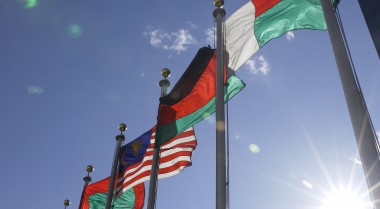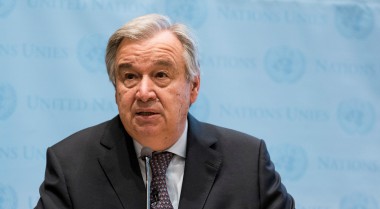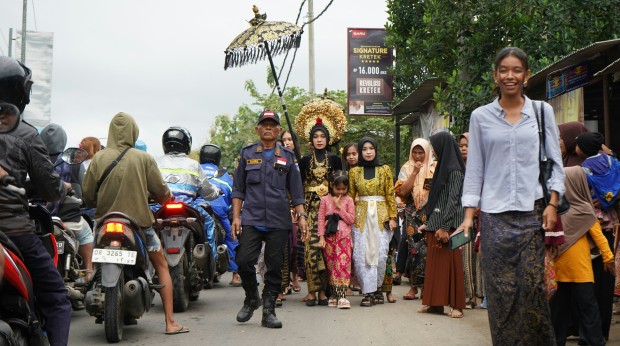Interview with Ivana Gajović on the relevance of the SDGs for peacebuilding CSOs
Ivana Gajović is the Director of the Nansen Dialogue Centre in Montenegro, regional secretariat of GPPAC Western Balkans. Their work focuses on peace education and thus has a strong connection to the SDGs. In this interview, Ivana talks about why she thinks the SDGs are important for peacebuilding CSOs like the Nansen Dialogue Centre and many other GPPAC members.
Why are the SDGs relevant to the peacebuilding community?
The SDGs are really responding to the contemporary needs of the 21st century. They compile everything that makes our world unique, reminding us, first of all, of the things that are of relevance and importance. I'm referring, for example, to the goals that are related to ecology in broader terms. This is not necessarily only about how we preserve the nature but also about how we build relationships between peoples in a healthy and good ecological manner.
It is also about building the capacities and providing space for voicing the need for peaceful and sustainable societies and the importance of the related goals on education and the empowerment of women. With these 17 goals, putting them on one list, we simply see how the topics are interlinked.
How do you see the role of CSOs and GPPAC in particular in the SDGs?
When it comes to CSOs in broader terms, it is important to connect, because most of the CSOs have their own visions and missions and these correlate indeed very much with the SDGs. But how do we find our space to send the messages, for instance of an inclusive approach? It is about how to connect on the national level with the relevant institutions, tailoring and strengthening local approaches and finding the space to send the messages of what might be done differently.
For GPPAC, when it comes to collaborative work in the SDGs, the goals related to education and conflict prevention are connectors that provide a common space. They refer to the work that GPPAC members in different regions are doing. This is not necessarily only the case for these two goals, but I am emphasising them because they are perhaps more visible. For me, it is the work that us, as members of the network are doing on the national level. This is the advocacy work on the one hand but also translating the goals into practice. By this I mean concrete activities that might fulfil, on a very micro level, the things that are articulated through the goals on a global level. And this kind of correlation of the big and the small things is what helps us to take steps forward in fulfilling these big goals.
The sustainable development report as one instrument, the human development report as a part of it and the other relevant reports and instruments compile so much data. This data is relevant for CSOs because if we read them properly we can understand the context and we can understand what might be done better and where to put the stress in terms of activities or problem solving. And the next report perhaps might be reporting that something actually changed. There I see the space of activism of CSOs and there I see the space where GPPAC may find its own niche to send its messages.
--- GPPAC is supporting its members to become involved in SDG processes relevant to conflict prevention and peacebuilding in order to ensure an inclusive, people centred implementation process. GPPAC also aims to bring experiences and lessons learnt from our members to the policy level, relating them to the SDG agenda in a meaningful way. --


